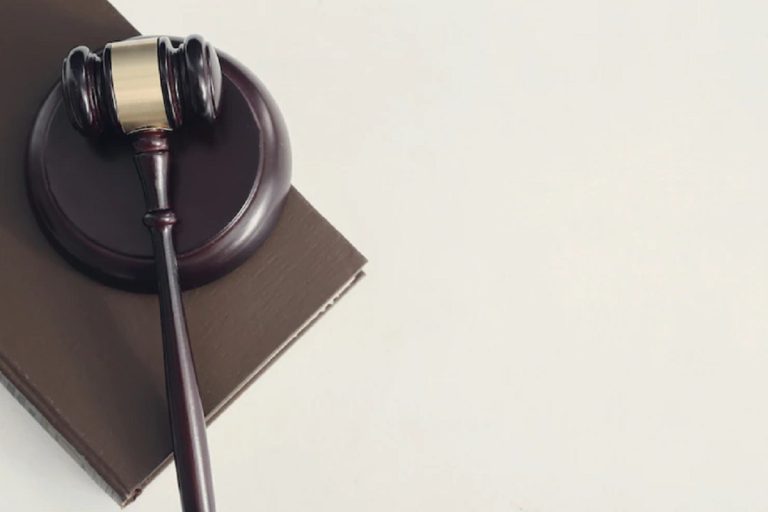The court sentenced Kolacek and Klimecky to 7.5 years and six years in prison, respectively. Photo credit: Freepik.
Prague, June 12 (CTK) – A court today found Antonio Kolacek and Oldrich Klimecky guilty in the case of fraud related to the privatisation of the Czech MUS coal-mining company, as the former managers deprived the state of over CZK 2 billion by concealing they were buying a minority state share in it, according to the court.
The court sentenced Kolacek and Klimecky to 7.5 years and six years in prison, respectively, and the forfeiture of several hundred million crowns from their bank accounts.
Both men were also given a five-year ban from corporate management.
According to the verdict, which can still be appealed, Kolacek and Klimecky fraudulently denied the Czech Republic revenue amounting to at least CZK 2.37 billion, which they must repay jointly.
The chairwoman of the Prague City Court panel, Silvie Slepickova, said the men had committed both fraud and abuse of position in business relations, and Klimecky had been the organiser of the crime.
In imposing the sentences, the panel agreed with the prosecutor’s proposals.
It also found the last defendant, former deputy industry minister Robert Sykora, guilty of accepting a bribe in connection with the preparation of documents for the government’s decision on the sale of a stake in MUS. The court sentenced him to three years in prison, a fine of CZK 4.5 million, and a disqualification order.
Kolacek has already announced that he will appeal.
Of the defendants, only Kolacek was present to hear today’s announcement of the verdict. He arrived at the courtroom in a formal suit and white top hat.
“I’m not saying I’m shocked. I’m surprised,” he told reporters during a break between the announcement and the justification of the verdict.
“I don’t understand the whole verdict, let alone the sentence. There seems to have been a significant misunderstanding here of how privatisation took place in the 1990s. We did not do anything illegal,” he said.
“Facts were written down and someone made a deliberate criminal act out of them. We restructured and stabilised MUS. We did what the governments of the time required,” he said, adding that he had in no way harmed the Czech Republic or Switzerland.
When the verdict was announced, he meditated and brought the judge a gift, but did not reveal what it was.
The prosecution alleges that Kolacek, Klimecky, Jiri Divis, Marek Cmejla and Petr Kraus secretly controlled the company in 1998 with its own funds, siphoning off money under the pretext of increasing its worth abroad.
They then reportedly waited for the share price to fall and bought the shares from the state through Investenergy at a significantly lower price. The sale of the state’s stake in MUS was unanimously approved in July 1999 by the government of Prime Minister Milos Zeman, who later became president.
Eight people originally faced prosecution, but billionaire Lubos Mekota died in 2013 and the prosecution of former lobbyist and arms dealer Pavel Musela was suspended by the prosecutor for health reasons.
The indictment thus targeted six people connected to MUS. The prosecutions of Kraus, Cmejla and Divis were gradually suspended by the Czech court because they were serving sentences imposed earlier in the Swiss branch of the case. Kraus went to prison in Switzerland, while Cmejla and Divis were eventually given suspended sentences and fines.
The court completed the extensive evidence this March, more than four years after the trial began.
The executives deny that they concealed from the government that they would eventually acquire the shares. They said the state knew who it was selling the stake to, and did not care, because privatising the asset was the priority.
Kolacek previously stated that he did not receive a single extra crown during the privatisation of the mining company. He stressed that his intention was to save MUS from extinction and to stabilise it.
Klimecky, 83, did not appear in court. Through his lawyer, he had earlier said that he did not understand the indictment, was confused by it and did not remember anything of what he was accused of.
He said he considered the privatisation of MUS to be a successful deal that enhanced the company’s economic performance and contributed to social peace in the region.
Zeman’s government unanimously approved the sale of 46% of MUS shares. Members of the cabinet previously testified as witnesses in court.
Zeman defended the sale of the government’s stake. He said MUS was not a strategic company and the government was happy to get rid of its minority stake.
Former industry minister Miroslav Gregr, who pushed for the direct sale of the state’s stake instead of a tender, said he was unaware of the connection between Investenergy and the accused managers. However, he admitted that it was no secret behind the scenes that the MUS management was seeking sole ownership of the company.
The prosecutor questioned the statements by some former members of Zeman’s government.







